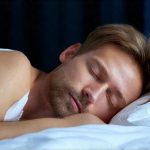The sudden, intense feeling of needing to urinate as soon as you wake up – often described as a “morning urge” coming on too fast and too strong – is a surprisingly common experience that many people quietly endure. It’s more than just having a full bladder; it’s the abrupt and sometimes distressing sensation that demands immediate attention, potentially disrupting sleep or leading to rushed mornings. While often harmless, this phenomenon can be incredibly unsettling and impact daily life, prompting questions about its causes and potential management strategies. Understanding what might be happening when you experience this strong morning urge is the first step toward feeling more in control and comfortable.
This isn’t necessarily a sign of illness, but it is a signal from your body that something is different than usual. Several factors can contribute to this experience, ranging from simple lifestyle choices to underlying physiological changes. It’s crucial to distinguish between an occasional instance and a persistent problem. A single occurrence is less concerning than a recurring pattern that interferes with sleep or daily routines. The aim here isn’t to diagnose but to explore the possibilities, offering insights into why this happens and what steps you can consider taking, always remembering the importance of consulting with a healthcare professional for personalized advice.
Understanding the Physiology Behind It
The sensation of needing to urinate is complex, involving a delicate interplay between your bladder, kidneys, nervous system, and hormones. Throughout the night, your kidneys continue to produce urine, gradually filling the bladder. Normally, this process doesn’t wake you up because of several protective mechanisms. One key factor is antidiuretic hormone (ADH), which slows down kidney function and reduces urine production during sleep. As we age, ADH production can decline, leading to more nighttime urine production and a fuller bladder in the morning. Another mechanism involves our ability to suppress awareness of bladder fullness while asleep – this suppression weakens as we get older or experience certain conditions.
The sudden intensity often stems from the rapid rate at which the bladder fills after hours of relatively stable volume. Consider that you haven’t been able to empty your bladder for six to eight hours (or even longer) during sleep. When you finally wake up, that accumulated urine can trigger a strong signal to the brain, leading to the urgent sensation. This is further amplified if you drink fluids close to bedtime or have underlying conditions that affect bladder capacity or sensitivity. It’s important to remember this isn’t necessarily about more urine, but rather about how quickly it registers as an overwhelming urge.
Finally, certain lifestyle factors can exacerbate the issue. Excessive caffeine or alcohol consumption before bed are known diuretics, increasing urine production. Similarly, dietary habits and even stress levels can play a role in bladder sensitivity and function. These seemingly small choices accumulate over time and contribute to the overall experience of a strong morning urge.
Exploring Potential Contributing Factors
- Age: As mentioned earlier, age plays a significant role. ADH production naturally declines with age, as does bladder capacity and the ability to suppress awareness of fullness during sleep.
- Dietary Habits: Consuming large amounts of fluids before bed or indulging in diuretics like caffeine and alcohol can significantly increase urine production overnight.
- Sleep Patterns: Irregular sleep schedules or insufficient sleep can disrupt hormonal balance and negatively affect bladder control.
- Underlying Conditions: Certain medical conditions, such as diabetes, overactive bladder (OAB), or prostate enlargement (in men) can contribute to increased urinary frequency and urgency. These will require professional diagnosis and treatment.
The interaction between these factors is complex; it’s rarely a single cause but rather a combination that leads to the strong morning urge. Identifying your personal contributing factors is crucial for developing effective management strategies. For example, someone who drinks coffee before bed and has mild OAB symptoms might experience a more intense urge than someone with just one of these issues.
The Role of Overactive Bladder (OAB)
Overactive bladder isn’t necessarily about having a physically damaged bladder; it’s often related to miscommunication between the brain and the bladder muscles. This can lead to involuntary contractions of the bladder muscle, even when it’s not full, creating a sudden, strong urge to urinate. While OAB symptoms can occur at any time, they are often more pronounced in the morning because of the prolonged period without urination during sleep. The bladder has had all night to fill, and even slight pressure can trigger those involuntary contractions.
Diagnosing OAB typically involves ruling out other potential causes, such as urinary tract infections (UTIs) or prostate issues. Treatment options range from lifestyle modifications – like fluid management and timed voiding schedules – to medications that help relax the bladder muscles or reduce nerve signals associated with urgency. If you suspect you might have OAB, it’s important to consult a healthcare professional for an accurate diagnosis and appropriate treatment plan. It’s often manageable, but requires a proactive approach.
Lifestyle Adjustments & Management Strategies
Addressing a strong morning urge often begins with simple lifestyle adjustments. Here are some steps you can take:
- Fluid Timing: Avoid drinking large amounts of fluids in the 2-3 hours before bedtime.
- Dietary Modifications: Reduce your intake of caffeine, alcohol, and other diuretics, especially in the evening.
- Timed Voiding: Practice timed voiding during the day – urinating at regular intervals, even if you don’t feel the urge – to retrain your bladder.
- Pelvic Floor Exercises (Kegels): Strengthening your pelvic floor muscles can improve bladder control and reduce urgency. These are beneficial for both men and women.
- Sleep Hygiene: Establish a regular sleep schedule and ensure adequate sleep duration to support hormonal balance.
These adjustments may not eliminate the urge entirely, but they can often significantly reduce its intensity and frequency. Remember that consistency is key – it takes time to see results from lifestyle changes. If these strategies don’t provide sufficient relief, or if your symptoms are worsening, seeking medical advice is essential. A healthcare professional can help determine the underlying cause and recommend more targeted treatment options.
The information provided in this article is intended for general knowledge and informational purposes only, and does not constitute medical advice. It is essential to consult with a qualified healthcare professional for any health concerns or before making any decisions related to your health or treatment.





















